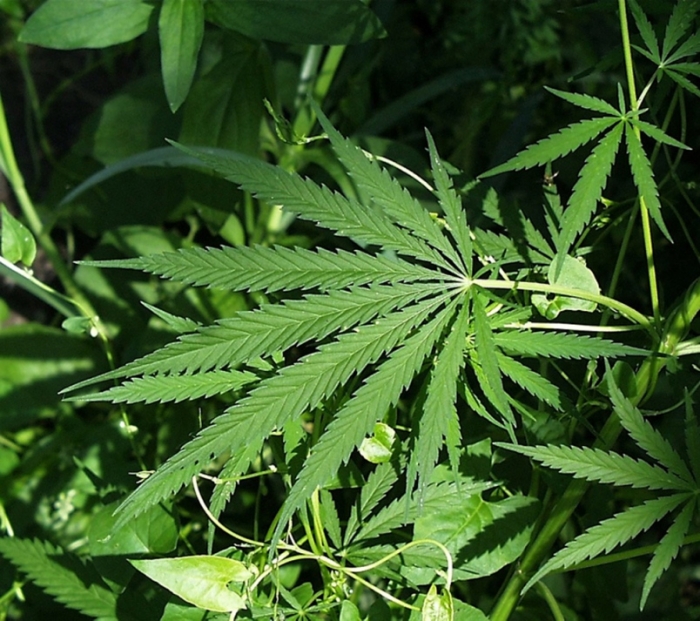No tax talk in provincial marijuana legislation

Municipal costs to legalize recreational marijuana cannot be quantified, but B.C. communities are still calling for half of the provincial cut of taxes.
“Yes, there are costs, there are real costs,” Kamloops Mayor Ken Christian said. “I believe that we should not be asking Kamloops taxpayers to pony up. I think that we should be getting that money through the people who are selling this product.”
Christian and Sicamous Mayor Terry Rysz are among B.C. mayors who want 50 per cent of the provincial share of taxation when marijuana is legalized. The topic was noticeably absent from provincial updates on Thursday regarding what recreational marijuana will look like in B.C.
Christian said exact costs for municipalities is unknown until legalization.
So, where does that 50 per cent number come from?
“So, why then should the province take more?” Christian asked. “Because they’re not doing as much. They’ll have the marijuana inspectors and they’ll be looking at policing in municipalities under 5,000. But from my perspective, there’s going to be tax on marijuana ... that money should be split between all levels of government that have a stake in making sure that this is done properly.”
Christian said the city is already incurring costs in the way of planning, bylaw enforcement, property-use, business licensing and RCMP resources.
“All of those divisions of the city have staff that are actively working on these files,” he said.
Asked if problems would not decline by legalizing the drug, Christian said greater marijuana use amongst the general population would lead to a need for drug-recognition experts to police roads.
Asked what costs arise from adding liquor stores, Christian said such shops require monitoring from liquor inspectors and the Liquor Control and Licensing Branch. Those costs, however, fall on the province.
“Except that there’s a bunch of factors that come into the municipality in terms of those inspections,” Christian said.
“Things like the business licence fees, things like the fire inspections. All of that sort of stuff. So, the more of those you have, there’s going to be costs associated with that.”
Christian added zoning will take up significant development and engineering staff time to set up distribution of stores.
Council recently received a staff report on bylaw changes that would require cannabis stores be located in the same zones as liquor stores, 150 metres from schools and with a minimum distance of 150 metres between shops to avoid clustering.
The city estimates between 15 and 20 stores will open in the Tranquille Market, downtown and in shopping centres as central as the Walmart complex near TRU and as far afield as Westsyde Shopping Centre. The topic will soon go to a public hearing.
“I think we’re leading the effort in terms of the issue of zoning and congregation of recreational marijuana retail outlets,” Christian said.
The province unveiled three bills on Thursday outlining how recreational marijuana will be regulated. It will have jurisdiction over wholesale distribution of cannabis and sales will be allowed through public and private stores to buyers ages 19 and older.
“It looks like everything that we’re doing is allowable and recommended and that we’re following guidelines the government would play out as best practice,” Christian said.
A community safety unit will target illegal sellers and a 90-day driving prohibition on drivers will be given to drivers under the influence of drugs. Government-run stores will be called BC Cannabis Stores, with the first outlet expected to open by late summer. Online sales are also in the works.
B.C. is one of the last provinces to table recreational marijuana legislation in advance of legalization.
420 Intel is Your Source for Marijuana News
420 Intel Canada is your leading news source for the Canadian cannabis industry. Get the latest updates on Canadian cannabis stocks and developments on how Canada continues to be a major player in the worldwide recreational and medical cannabis industry.
420 Intel Canada is the Canadian Industry news outlet that will keep you updated on how these Canadian developments in recreational and medical marijuana will impact the country and the world. Our commitment is to bring you the most important cannabis news stories from across Canada every day of the week.
Marijuana industry news is a constant endeavor with new developments each day. For marijuana news across the True North, 420 Intel Canada promises to bring you quality, Canadian, cannabis industry news.
You can get 420 Intel news delivered directly to your inbox by signing up for our daily marijuana news, ensuring you’re always kept up to date on the ever-changing cannabis industry. To stay even better informed about marijuana legalization news follow us on Twitter, Facebook and LinkedIn.




